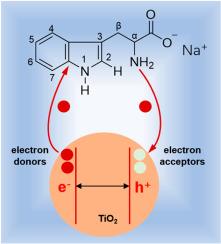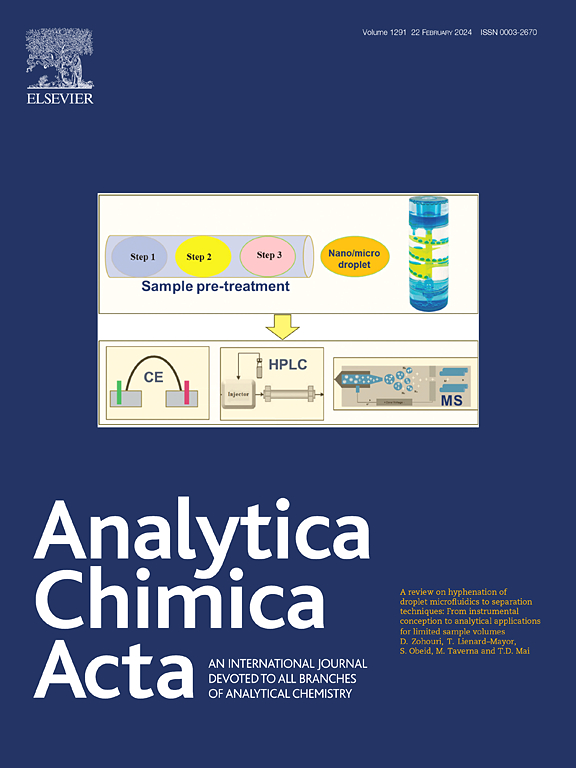Mass Spectrometric Monitoring of Redox Transformation and Arylation of Tryptophan
IF 5.7
2区 化学
Q1 CHEMISTRY, ANALYTICAL
引用次数: 0
Abstract
Tryptophan (Trp) is an essential amino acid obtained from human diet. It is involved not only in de novo biosynthesis of proteins but also in complex metabolic pathways. Redox transformation of tryptophan is under-explored in comparison with kynurenine, serotonin and indole pyruvate pathways. We described herein a mass spectrometric approach that can not only detect electron transfer-associated changes in masses and charges, but also identify electron-directed bond cleavages and radical-radical cross-coupling reactions in redox transformation of tryptophan. Photoactive TiO2 that is widely applied in cosmetic products is used as electron donor and receptor because of the capability to generate photoelectrons and holes. It was demonstrated tryptophan undergoes redox transformation through the removal of an electron from amino nitrogen atom by hole oxidization along with an electron capture in the indole ring. The back and forth electron-shuttle converts electric energy into chemical energy that enforces bond cleavages. Sodium-coupled electron transfer (SCET) was found in complementary with proton-coupled electron transfer in tryptophan. The movement of sodium ions avoids electric charge buildup caused by electron transfer. Various redox products were detected on both light irradiated TiO2 and skins, among which β-carboline shows extensive radical scavenging ability for diverse cross-coupling with indole derivatives. Light-independent redox products have been detected in vivo such as in mouse brain, indicating the presence of in vivo electron transfer-directed redox transformation. It has also been revealed that tryptophan can be arylated on Cα and Cβ atoms in response to the exposure of halogenated aromatics.

色氨酸氧化还原转化和芳基化的质谱监测
本文章由计算机程序翻译,如有差异,请以英文原文为准。
求助全文
约1分钟内获得全文
求助全文
来源期刊

Analytica Chimica Acta
化学-分析化学
CiteScore
10.40
自引率
6.50%
发文量
1081
审稿时长
38 days
期刊介绍:
Analytica Chimica Acta has an open access mirror journal Analytica Chimica Acta: X, sharing the same aims and scope, editorial team, submission system and rigorous peer review.
Analytica Chimica Acta provides a forum for the rapid publication of original research, and critical, comprehensive reviews dealing with all aspects of fundamental and applied modern analytical chemistry. The journal welcomes the submission of research papers which report studies concerning the development of new and significant analytical methodologies. In determining the suitability of submitted articles for publication, particular scrutiny will be placed on the degree of novelty and impact of the research and the extent to which it adds to the existing body of knowledge in analytical chemistry.
 求助内容:
求助内容: 应助结果提醒方式:
应助结果提醒方式:


